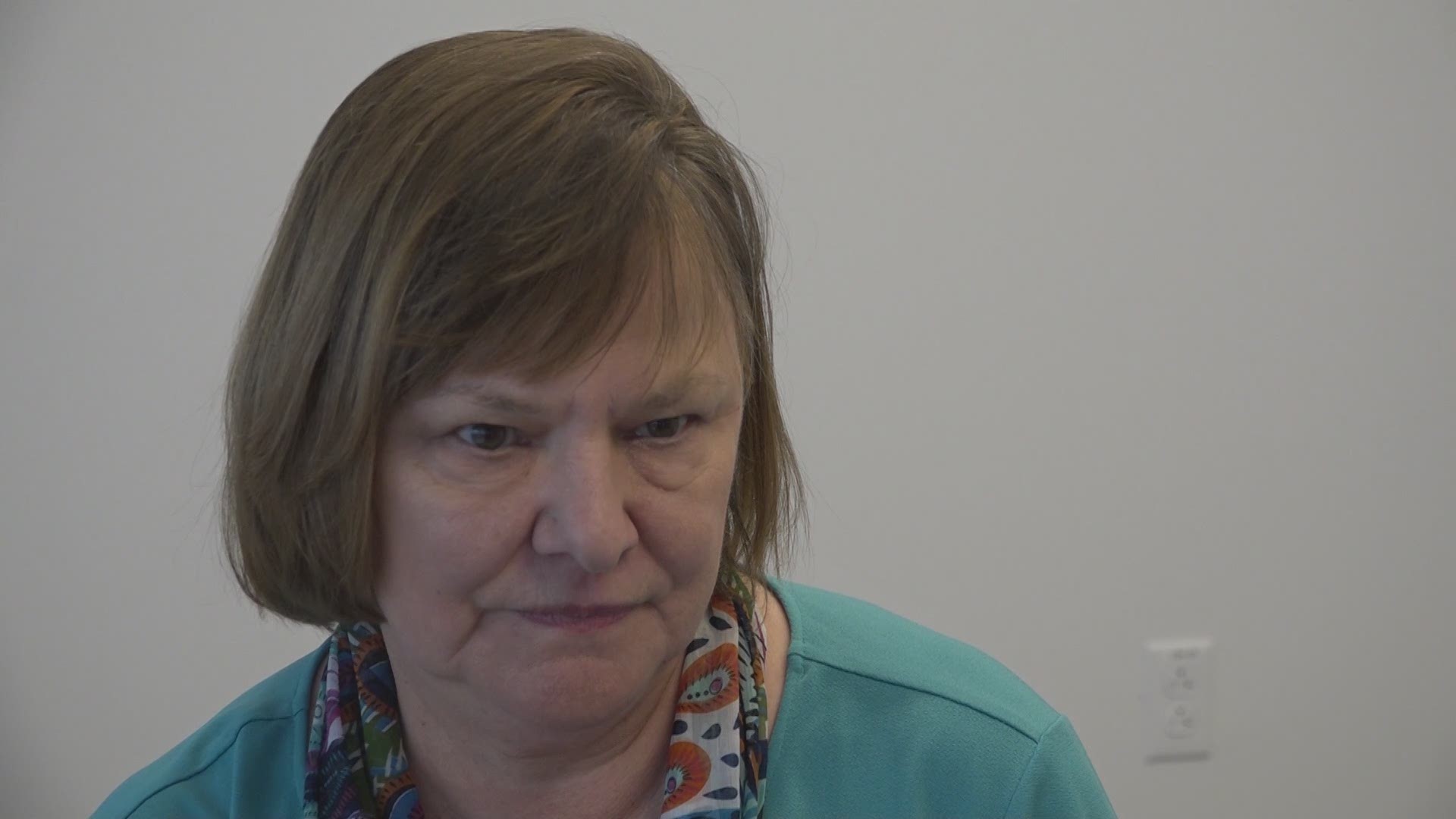AUSTIN, Texas — Hundreds of Austin ISD families have been scrambling to find new schools for their kids since the AISD Board of Trustees voted in November 2019 to close Brooke, Metz, Pease and Sims Elementary schools. AISD said their Social and Emotional Learning Team is working to help families, teachers and students cope with the major changes.
According to AISD's website, Social and Emotional Learning (SEL) is a process for helping children and adults develop fundamental skills for life effectiveness. They said SEL teaches the skills we all need to handle ourselves, our relationships and our work effectively and ethically.
"If you think about the brain, it develops from the bottom up and the inside out. The very first part of the brain is regulation. It's the brain stem and when change happens, we throw people into a sense of, 'Oh, my gosh, what am I going to do?'" said Pam Martin, AISD's elementary counseling coordinator.
Martin said a committee of people from the school counseling office and the Social and Emotional Learning Department created a framework with strategies and ideas.
"Our idea was to create this toolkit. Then counselors and administrators could look at that tool kit, tailor it, make it around the needs that their specific community needs and create some strategies. School counselors help children through change every day, every kind of change and we have procedures and plans for transition from elementary to middle and middle to high school," Martin said.
RELATED:
Martin said the framework includes three tiers and Tier 1 is "universal support."
"Classroom lessons, no place for hate coalitions. Some of the counselors that have come up with their own great ideas, like one school is going to provide a summer orientation camp for students transitioning from one school to the next," Martin said.
She said Tier 2 is "intervention," and it's for kids who may need an additional layer of support.
"Which is like small group intervention, a little more time and attention to the needs and so we created some supports on that level," Martin said.
Martin explains Tier 3 is when students who have been referred to services like special education, 504 services or outside therapy or mental health resources receive individualized counseling.
RELATED:
"We don't want that to get lost in the mix. So, we are providing opportunities for counselor-to-counselor engagement. Counselors can meet with each other, go through their list of students that are receiving those higher tiers of service, to make sure that level of service continues," Martin said. "Our main goal is to be able to support families, staff members and students through change because with change comes a loss but also possibilities."
The majority of students impacted in the school closures are kids of color and economically disadvantaged families. Parents and students advocated to keep the schools open for months, but the Board of Trustees voted to close the schools anyway.
In AISD's Chief Equity Officer Stephanie Hawley's 20-page Equity Analysis of Process, Principles & Practices report released in December after the November vote, she argued the decision to close four elementary schools would gravely affect under-served communities and continue racial and economic segregation.
In the report, she said that under-served students aren't getting help with the school closures. Parents KVUE spoke with agree with Hawley.
AISD claims the school changes will benefit students in the long run and Martin said they want parents and students to know this is a difficult time.
"We want to be there. We want to listen. We want them to know that they are heard and that we will be responsive to their needs," Martin said. "School change is a domino effect. So, while we talk about four schools, it affects more than four schools. And so, we are kind of providing an overarching support for all of our counselors to understand the processes."
She said they're supporting families through the grief of losing their communities.
"The school counselors are our parents on the ground. They know the children better than we do. They have the relationships, they've built the trust and they will consult with us regarding those cases. Some children will have more difficulty with change than others and we support our counselors with resources in training so that they can support the families," Martin said.
As students experience this level of change, Martin explains it's expected that some children would have issues. If a child is having behavioral issues and changing sleep patterns, eating patterns or interests, Martin suggests regulating the kids through basic movement, good nutrition, listening and "just creating time and space to hear them."
RELATED:
"We do a lot of mindfulness in our school district and we know that movement and mindfulness are very powerful. We use something called the 'check engine plate' which helps us communicate with our kids about our feelings," Martin said. "It's basically three colors on a paper plate, but with a little arrow. When you're in the green, that means that you are regulated. You are using your logical brain to make decisions. If you're blue, you're feeling kind of low and sluggish."
She said the school district plans to provide support for a long time and that parents have asked for this, as well.
"We also do community circles to build a sense of connection and trust. We've had school counselors meet and the school counselors from the receiving schools and visit with the students. That's going to continue," Martin said. "A couple of weeks ago, Linder, Govalle and Brooke combined their 'Catch Night,' which is a health and wellness night. So, they're doing things already to kind of provide that sense of being secure and seen and soothed."
RAW Interview: How Austin ISD's Social and Emotional Learning methods work
PEOPLE ARE ALSO READING:

